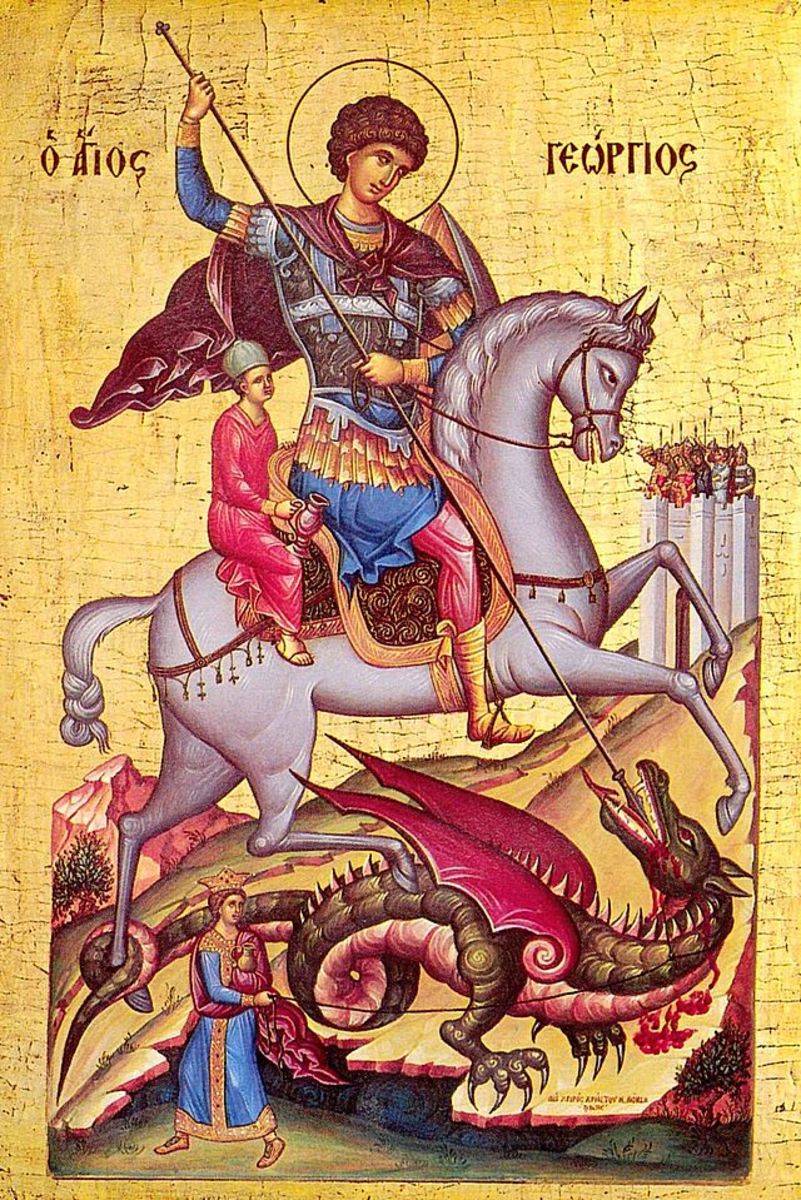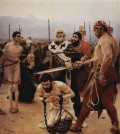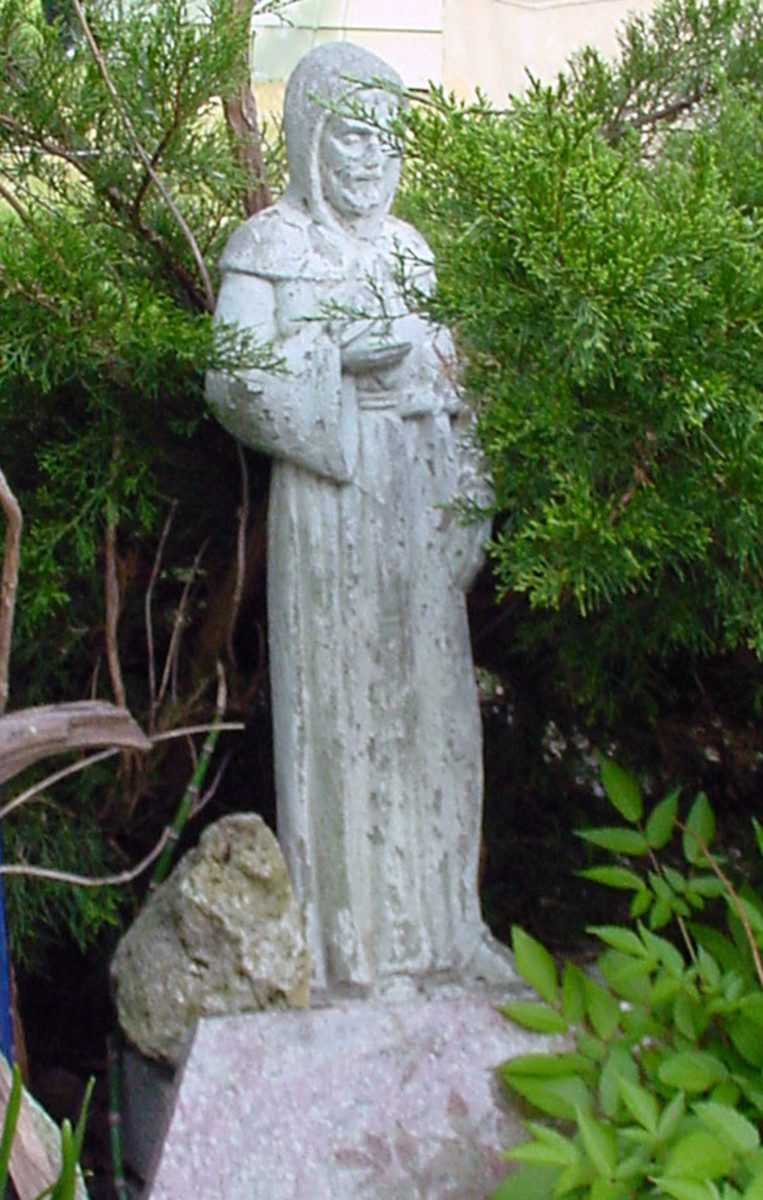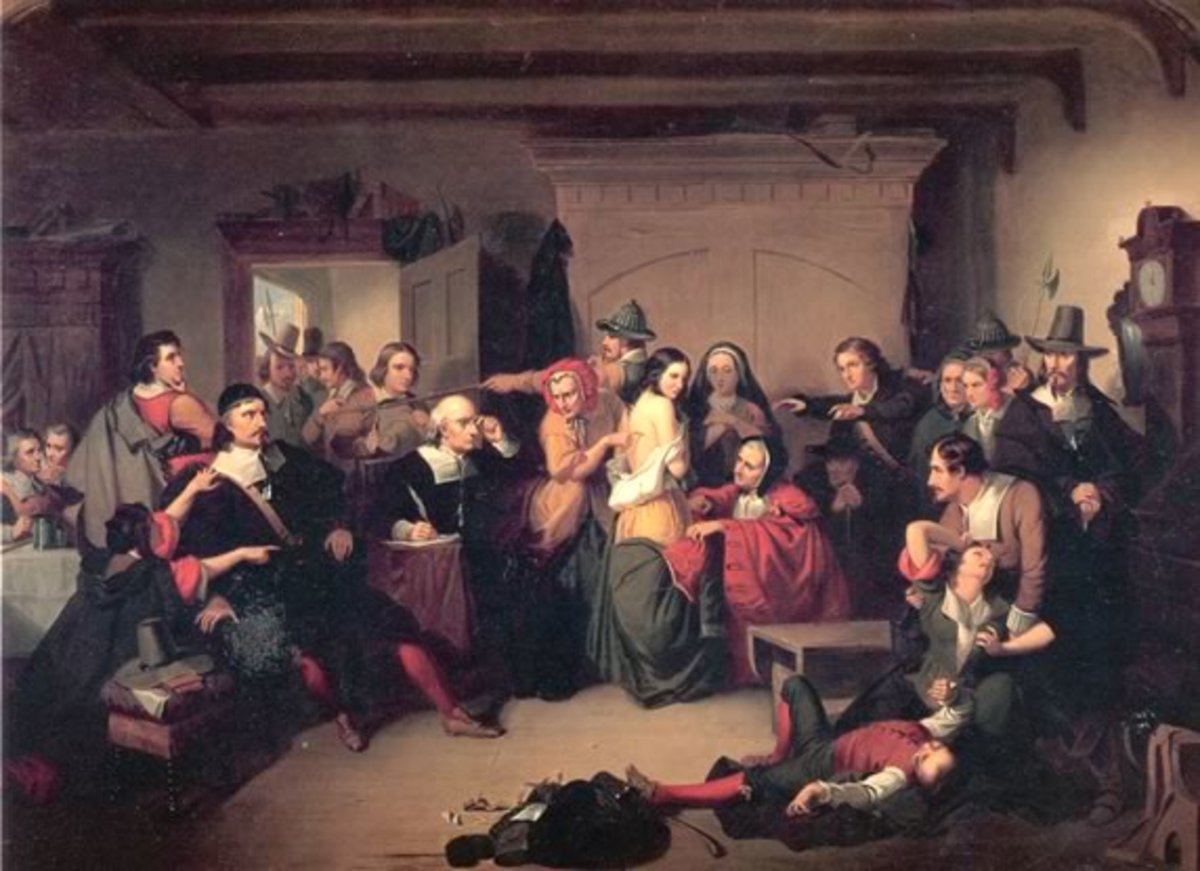Francis of Assisi, Patron Saint of Animals
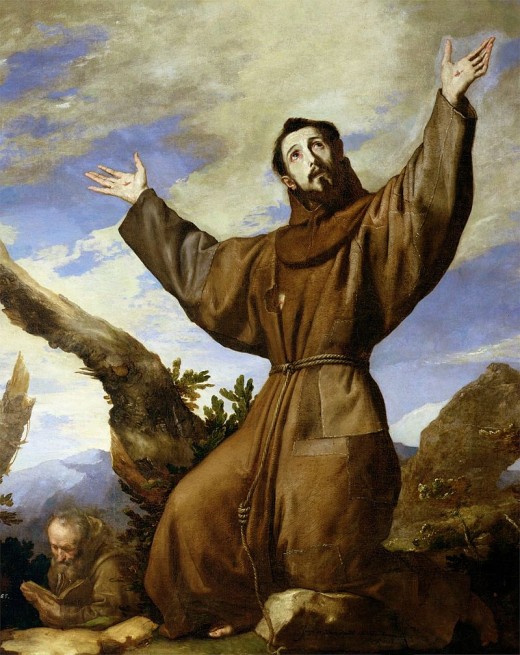
There are two stories in particular that would seem to serve as the basis for Francis of Assisi as the Patron Saint of Animals, both of which can be found in the 'Fioretti' (or, 'Little Flowers') – a collection of legends and folklore that sprang up around the Saint after his death.
In the first, after being told that he should work to convert many to the Catholic faith, Francis was out traveling with some companions when they came across a place where birds filled the trees around them. Francis called for his group to come to a stop, and asked his companions to "[w]ait for me here by the way, whilst I go and preach to my little sisters the birds". The story goes on to mention how Francis walked among the birds, and spoke to them – and, how not a single bird moved, even to the point of allowing him to touch them. The birds listened to Francis' sermon, and only flew away once the sermon had reached its conclusion.
The second story concerns Francis' taming of a savage wolf near the city of Gubbio. During a period in which Francis was living in the city of Gubbio, a large wolf appeared, one so savage that it preyed on men and women just as easily as it did on animals. Francis, along with some trusted companions, went out to find the wolf – however, as they moved further from the city, fear of the animal caused his companions to flee, until Francis was left to travel alone.
Once he found the wolf, Francis made the sign of the cross and commanded the animal to come to him, which the wolf promptly did – laying at his feet just as any loyal dog would. Francis lamented the evil acts that the wolf had committed, but offered to arrange a peace between the animal and the people of the city. He led the wolf back to Gubbio, where he informed the people of the city that, since the wolf's acts were motivated solely by hunger, the people should take care to see that the wolf is fed, on the condition that the wolf no longer harm either the people of the city or the animals under their care.
Regarding the man himself, though – Francis of Assisi was born in1181 (as Giovanni Francesco di Bernardone). He was the son of a wealthy merchant who lived the sort of carefree life typical of the children of wealthy families. Always popular, he became the leader of a group of similarly wealthy young men and women, who devoted much of their time to parties, and simply enjoying everything that their status offered them. Despite this, though, Francis also displayed some sense of dissatisfaction with the world around him, and a genuine compassion for the less fortunate.
In one particular story associated with Francis' early life, he was conducting business on behalf of his father when he saw a beggar begging for alms – when he had finished selling his father's wares, Francis went after the beggar and gave him everything that he had earned in the deal. This was an act that earned him mockery from his friends, and anger from his father.
Later in life, Francis was drawn to military service – joining a military expedition in 1201. However, he was captured and spent a year held as a prisoner before his eventual release. It is commonly considered that it may have been during this period that the process of his religious conversion began. In 1205, Francis left Assisi to enlist for military service once more, but had a strange vision which compelled him to return home.
Francis began to move away from his old life. Avoiding the usual extravagant parties in favor of time spent alone, asking God for enlightenment and working in lazar houses near Assisi, caring for the lepers there. Later, he joined a pilgrimage to Rome, where he joined the poor in begging for alms at the doors of churches.
It was after this, at a small country chapel in San Damiano, that Francis is believed to have had a second vision; this time, of Christ himself asking that he help to restore his house, which had "fallen into ruin". Francis took the vision to mean that he should devote himself to restoring this particular chapel, but it was later commonly accepted that the vision was intended as a request that Francis should work to remove the greed and corruption that had settled into the Church, as a whole.
Francis began to draw on some of the income from his father's business in order to help restore the small chapel – another act which angered his father, leading to legal proceedings and, finally, a complete severing of the relationship between father and son.
In 1209, Francis was moved by a sermon he had heard to devote himself completely to a life of poverty and repentance. He began to preach, despite having no license to do so, and gradually gathered a group of loyal followers. These followers formed the starting point for the Franciscan Order, which was officially recognized a year later. The rest of his life was devoted to vows of poverty and to his missionary work.
Saint Francis of Assisi died as a result of illness brought on by a life devoted to poverty, in 1226. He was pronounced a saint by Pope Gregory IX two years later, in 1228. In 1939, Saint Francis of Assisi was named as a joint Patron Saint of Italy, alongside Saint Catherine of Siena. And, finally, in 1979 he was declared the Patron Saint of Ecology, by Pope John Paul II.

